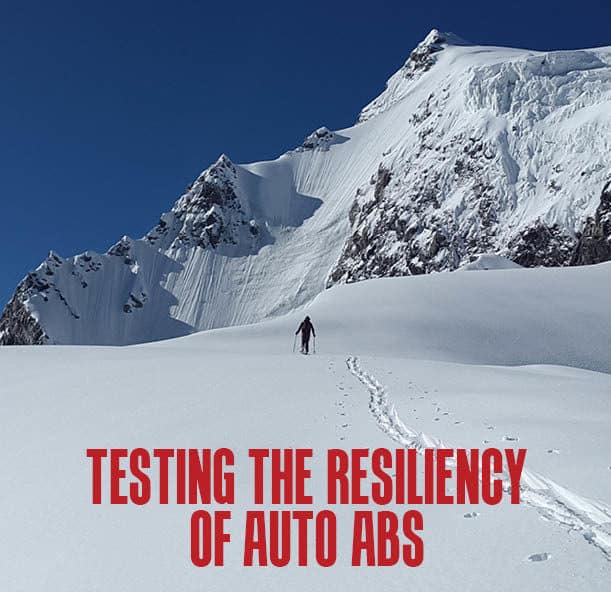Testing the resiliency of auto ABS

The auto asset-backed securities market continues to attract investors — even from overseas. While market headwinds brought on by lengthening loan terms, trade disagreements and a potential economic downturn test the market’s resilience, closer examination of the auto ABS structure proves the strength of these bonds in the face of adversity.
In fact, investor appetite for auto loan- and lease-backed securities is on the rise, spurring lenders to pump up ABS deals. Westlake Financial, for one, saw 33 investors return and three new investors enter the fray for its $1.2 billion securitization in July, despite market tensions that caused Libor rates to fall 65 basis points lower than Westlake’s February transaction.
Last month, Westlake issued a third securitization, originally set for $1 billion, according to an S&P Global presale report. The deal subsequently closed at $1.3 billion, boosting the lender’s issuance to $3.4 billion, a 13.3% year-over-year increase. “We upsized by about $300 million,” said Westlake Group President Ian Anderson. “Part of the reason for that was because of the demand by investors.”
Further examination into the securitizations of three of the nation’s top issuers — American Honda Finance Corp., Ford Motor Credit and Toyota Motor Credit Corp. — reveals a similar pattern of reoccurring investor activity. Allianz SE, Capital Group Companies, Deutsche Bank, Fidelity, Invesco, Prudential Financial and TD Bank have each invested more than $100 million in all three captives. Investment firms BlackRock and The Vanguard Group have invested more than $1 billion each.
Yet, all is not sunshine and rainbows in the auto ABS market. Lengthening loan terms are a concern when it comes to affordability issues and credit performance, as they can lead to back-loaded losses, said Amy Martin, director of structured finance at S&P Global.
Bank of the West has the highest concentration of 84-month loans in its securitzation pool, landing at 69%. Similarly, Toyota Motor Credit included 84-month loans in its Toyota Auto Loan Extended Note Trust shelf — a $1.5 billion deal — on June 5. Those extended loans comprised 7.6% of the pool. Fifth Third Bank also securitized them, coming in at 4.5% of the aggregate pool.
Investors appear unfazed by lengthening loan terms. “In our last deal, average loan terms ticked up a month or a month-and-a-half, and investors don’t seem to be worried about it,” Anderson noted. “From a capital markets basis, risk management and the durability of vehicles these days, we’re pretty comfortable where terms are today.”
Rick D’Emilia, managing director of asset-backed securities at investment firm Wilmington Trust, which serves as trustee for CarMax, Santander Consumer USA and Tricolor Auto Acceptance’s transactions, is “surprised” by the market’s resilience.
“With all the volatility that’s happening, deals continue to get done, deals continue to get oversubscribed,” D’Emilia explained, noting that auto securitizations average about 20 investors. An ABS deal is considered oversubscribed when an issuer obtains funding from more investors than expected, raising more money than intended.
Toyota Motor Credit, which typically securitizes four deals per year and has 50 to 60 investors in any one deal, saw its June 5 securitization oversubscribed by six times, said Adam Stam, director of secured funding at the captive.
Despite concerns around longer loan terms, auto ABS deals are considered short-term paper compared with other asset classes. “Issuer activity is hot and heavy, which shows that there is a good ABS market as investors line up for short-term paper,” D’Emilia said.
Under the microscope
The overall ABS market is on track to outperform 2018, according to D’Emilia. “The market is very active with a lot of new stuff happening,” he said. “I’m very bullish that the appetite and conditions are right to outpace last year, with [growth] continuing into 2020.”
Looking closer, asset-backed securities accounted for nearly half of the $531 billion of structured finance issuance in 2018, clocking in at $239 billion, according to data provided by S&P Global. Auto ABS — which includes retail loan, lease, dealer floorplan, rental and fleet financing — accounted for $116 billion, or 22%, of all structured finance.
By comparison, auto ABS transactions have amounted to $98 billion through September. At that pace, total auto ABS volume would hit $130.7 billion by yearend, according to Auto Finance News estimates.
Several characteristics make auto ABS deals enticing to investors. First, the inherent structure of the transaction mitigates the risk of losses and spurs investor confidence, said Robert McDonald, managing director at Stabilis Capital Management. In addition, deals are structured in a “waterfall” payment method, meaning the highest-rated assets — the A classes — get paid first, followed by lower-rated B, C and D classes.
“These transactions are a little bit like wine,” S&P’s Martin said. “They get better over time.”
Specifically, transactions “de-lever” from the get-go. “Every month a payment comes in, the [transaction] becomes safer,” McDonald said. “Auto deals have a target over-collateralization, so the equity beneath the bonds as a percentage of what’s outstanding grows,” he noted, adding that as a deal becomes more seasoned, bondholders have more cushion.
“It will take three, four, five months before investors start to see any losses funnel into the portfolio,” McDonald explained. “But at that point in time, the portfolio’s structure has deleveraged, and the initial credit enhancement has increased and will continue to increase. The deal gets safer as you go.”
Further, from a credit standpoint, the bonds have, historically, performed well. “You only have a handful of bonds that have defaulted,” McDonald said. “That’s attractive for investors.”
In addition, ABS bonds issued by lenders are “bankruptcy-remote,” meaning they are separate from the originator in the event of an adverse economic situation, Martin said. “[The bonds] have a clear separation from the originator of the assets and could not be used to pay creditors in a situation where the company goes bankrupt,” she explained.
Investors across the pond
The strength of the auto ABS market has garnered attention from foreign investors, too.
Investment firms from Canada and Germany have funded deals for top U.S. issuers, including Honda Finance, Ford Credit, and Toyota Motor Credit. Spanish and U.K. investors have backed auto ABS deals for Ford Credit, while Toyota Motor Credit has received funding from a French investment firm. Further, Westlake has seen an increase in investors from Australia and Japan, said Treasury Director Franka Bicolli.
“I’m not surprised there is more demand from foreign investors,” said Stabilis’s McDonald. “Particularly in an uncertain environment — short-duration assets get a lot of demand.”
The uncertain auto finance environment and turmoil surrounding U.S. tariffs on car imports could deal a blow to the global economy. However, despite the tariff threats, investors are still active in the U.S. market. The confidence from investors is largely due to a “reserve currency concept,” which notes the fact that the U.S. dollar is performing well and is considered a “safe haven” for investors, said Jamie Feehely, managing director of securitizations at National Bank Financial.
“You’d think given the trade-war dynamic, people would not rush into the U.S. dollar,” Feehely said. “But it’s that reserve currency concept, investors rush to the U.S. dollar for better or for worse.”
The auto ABS market is experiencing an influx in investor demand as other parts of the world, like Europe, have negative rates, Feehely noted. “You have a situation where in North America, there are still positive rates, and investors can still earn a yield,” he said.
Even with chatter of an economic downturn hitting the U.S. economy as soon as 2021, investors are more “immediate-focused,” Feehely said. “When you talk to these large pension funds, their biggest problem is the ability to put more money to work faster, which sounds like a great problem to have.”
Feehely noted that he had met a Canadian investor that was “sitting on so much money he is getting negative results on his portfolio.” If investors can’t invest fast enough, they face a challenge of overpaying on assets, Feehely explained. “If you are overpaying on an asset, you aren’t getting as much yield,” he added.
Westlake’s Bicolli concurred, adding that investors are attracted to the ability of U.S. consumers to repay their auto loans. “The U.S. market is doing better than everywhere else, so more global banks and investors are entering the space,” she said. “The U.S. consumer is resilient, so where else are [investors] going to put their money?”
Déjà vu
Despite a pending recession, auto ABS deals will increase in volume and perform well, according to S&P’s Martin, who referenced ABS issuance before the Great Recession.
“What stood out in 2006 is that Ford Motor Co. and General Motors lost their investment-grade ratings,” Martin said. In turn, the pair became “highly dependent” on the auto ABS market because it was the best way for them to receive funding, she explained.
Though the industry in 2019 is less dependent on the ABS market, Martin noted, the parallels between 2006 and today are evident, especially as Ford Motor’s rating was downgraded to non investment grade status by Moody’s Investors Services.
Looking at broader market conditions, auto loan performance is highly correlated with employment levels. As long as consumers still have jobs, then delinquencies and losses will remain low. In fact, in the past 12 months, the economy added 2.1 million jobs, and the unemployment rate is “amazingly low” at 3.5%, according to William Strauss, senior economist at the Federal Reserve Bank of Chicago.
Even consumers who lose their jobs tend to pay their auto loans because they need a car to find a new job, Stabilis’s McDonald explained. “Things have to get pretty bad for [a consumer] not to pay,” he said. “You stop paying other things first before you stop paying a car loan — that contributes to the [auto market’s] strength.”
Besides, the shorter term of auto loans versus mortgages serves as a form of asset protection. “I just don’t think you’ll see what happened in the mortgage market, where bonds actually take losses,” McDonald said. “It’s hard to imagine seeing that in the auto market because of the short duration of assets. Losses have to increase dramatically — where you’d lose 50% or worse than expected. We just haven’t seen that type of performance, historically.”
The confidence from investors, issuers, economists and analysts in the auto lending market is supported by current market data and a strong performance history. But there is one point that pushes confidence in the auto market further: As the Chicago Fed’s Strauss said at the Auto Finance Summit last month, “You can live in your car, but you can’t drive your house.”
Editor’s note: This article first appeared in the November issue.














